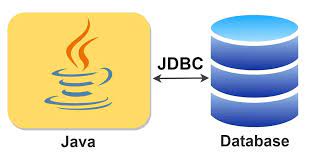Java, developed by Sun Microsystems (now owned by Oracle Corporation), is a versatile and robust programming language that has stood the test of time. With its “write once, run anywhere” mantra, Java enables developers to build applications that can run seamlessly on different platforms, including desktops, mobile devices, and embedded systems. This cross-platform compatibility makes Java an excellent choice for organizations aiming to reach a wide range of users.
Type of Java Software
The Advantages of Java Software
Scalability: Java’s scalability is unmatched, allowing applications to handle increasing workloads effortlessly. Whether you’re a small startup or an enterprise-level corporation, Java can accommodate your evolving needs.
Security: In an era plagued by cybersecurity threats, Java’s built-in security features provide a reliable defense mechanism for your applications. Its sandbox environment and extensive security libraries protect against malicious attacks, ensuring your sensitive data remains safeguarded.
Reliability: Java’s strong emphasis on error handling and exception management minimizes system failures and crashes. This reliability translates into uninterrupted operations and enhanced user experience, establishing trust and credibility among your customers.
Extensibility: Java’s vast ecosystem of libraries, frameworks, and APIs allows developers to leverage existing resources, saving time and effort in the development process. This extensibility enables rapid prototyping and faster time-to-market for your innovative ideas.
Community Support: Java boasts an expansive community of developers who actively contribute to its growth and evolution. The Java community provides valuable resources, forums, and updates, ensuring that you stay up-to-date with the latest advancements in the language.
Applications of Java Software
Java software finds applications across various industries, powering critical systems and driving efficiency. Let’s explore a few areas where Java shines:
Enterprise Applications: Java’s scalability and reliability make it an ideal choice for building robust enterprise applications. From customer relationship management (CRM) systems to supply chain management solutions, Java enables seamless integration and efficient data management.
Mobile Development: With the proliferation of smartphones and tablets, mobile app development has become a necessity for businesses. Java, with its cross-platform compatibility and support for Android development through the Android SDK, enables developers to create engaging mobile applications that cater to a wide audience.
Web Development: Java’s server-side capabilities make it a preferred choice for developing dynamic and interactive websites. Frameworks like Spring and JavaServer Faces (JSF) offer comprehensive tools for building scalable and secure web applications.
Internet of Things (IoT): Java’s flexibility extends to the realm of IoT, where connected devices require efficient communication and interoperability. With Java’s ability to run on embedded systems, it becomes a valuable tool for developing IoT applications, from smart homes to industrial automation.
Key Features of Java
1. Object-Oriented Programming
Java is known for its strong support of OOP concepts. It allows developers to create modular and reusable code by encapsulating data and behavior within objects. This promotes code organization, flexibility, and code reuse, leading to more maintainable and scalable applications.
2. Platform Independence
One of the significant advantages of Java is its platform independence. Java programs are compiled into bytecode, which can run on any system with a Java Virtual Machine (JVM). This cross-platform capability makes Java suitable for developing applications that can be deployed on various operating systems.
3. Garbage Collection
Memory management is critical in programming, and Java simplifies this task through its built-in garbage collection mechanism. It automatically handles memory allocation and deallocation, freeing developers from manual memory management headaches. This feature contributes to Java’s robustness and stability.
4. Exception Handling
Java provides a robust exception-handling mechanism, allowing developers to catch and handle runtime errors gracefully. By employing try-catch blocks, developers can write code that anticipates and handles exceptional scenarios, improving the reliability of Java applications.
5. Rich Standard Library
Java comes with a vast and comprehensive standard library, known as the Java Class Library (JCL), which provides a wide range of pre-built classes and methods for common programming tasks. This extensive library simplifies development, saves time, and enhances productivity.
Benefits of Java
Java offers numerous benefits, making it a popular choice among developers and businesses alike. Here are some key advantages of using Java for software development:
1. Portability
Thanks to its platform independence, Java applications can run on various platforms, including Windows, macOS, Linux, and more. This portability allows businesses to reach a broader audience and target different operating systems without significant modifications to their codebase.
2. Performance
Java’s performance is often a topic of discussion. While it’s true that Java might not be as fast as some low-level languages, it has made significant performance improvements over the years. With the Just-In-Time (JIT) compilation and other optimizations, Java can deliver efficient and high-performing applications.
3. Security
Java prioritizes security, making it a trusted choice for applications that handle sensitive data. It provides built-in security features such as automatic memory management, strong type checking, and security APIs. Additionally, Java’s robust ecosystem ensures frequent updates and patches to address any security vulnerabilities promptly.
4. Scalability
Java’s scalability is a significant advantage for businesses dealing with growing user bases and increasing workloads. Its ability to handle heavy traffic and high volumes of data processing makes it suitable for enterprise-level applications.
Conclusion
In conclusion, Java software is an essential tool for businesses that want to stay competitive in today’s digital landscape. It’s scalability and cross-platform compatibility.















